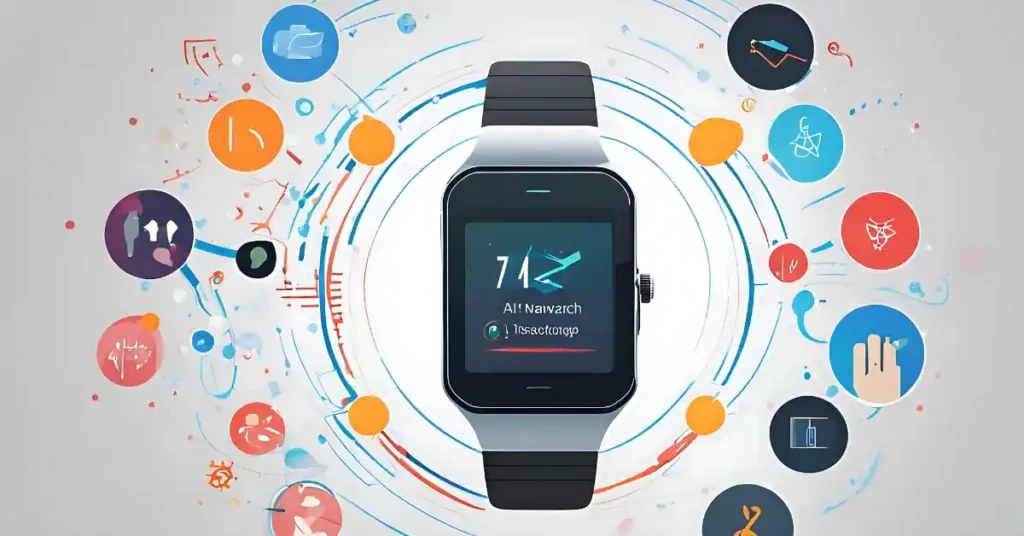The world of health and wellness has been transformed by the advent of AI smartwatches. These cutting-edge devices are no longer just simple timekeepers or fitness trackers; they are now sophisticated health monitors that can analyze your biometric data, track your daily activities, and provide personalized insights to help you achieve your wellness goals.
According to a recent report by Grand View Research, the global smartwatch market is expected to reach $96.31 billion by 2027, with the integration of AI and advanced health features driving much of this growth.
In this blog post, we will explore the exciting world of AI-powered smartwatches and uncover the secrets to unlocking your full health potential. From personalized nutrition plans to predictive analytics and enhanced user experiences, we will delve into the various ways these devices are changing the game for health enthusiasts worldwide.
So, if you’re curious about how AI-powered smartwatches can revolutionize your health and wellness journey, keep reading to discover the incredible benefits and potential of this technology.
AI Smartwatches Are Changing Everything – Find Out How
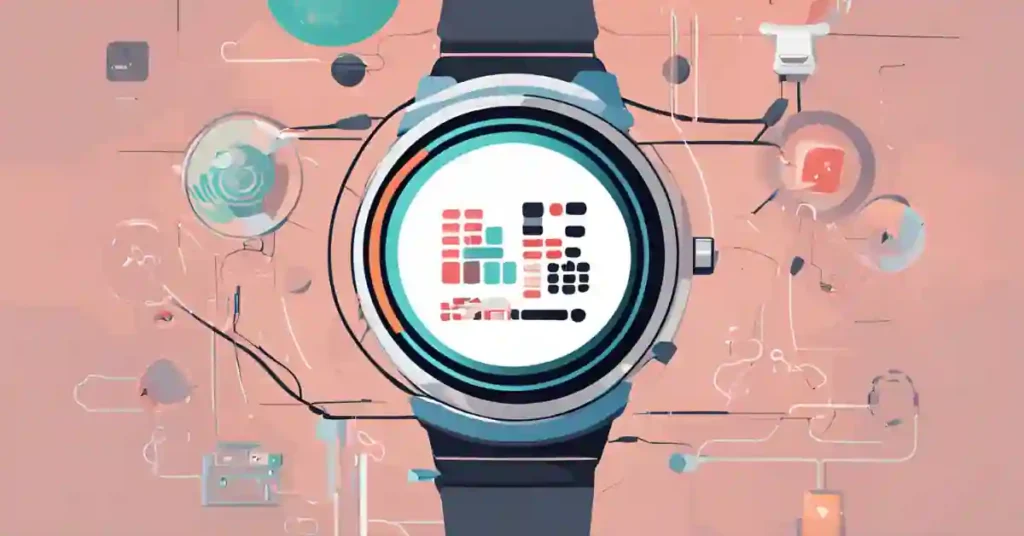
Get ready for super smartwatches! These aren’t just fancy clocks anymore. They’re learning to be like super assistants for your wrist. Here’s how:
The Rise of AI-Powered Smartwatches
I’ve witnessed the transformation of smartwatches from mere timekeepers to powerful tools that monitor, analyze, and provide personalized insights into my overall well-being. This shift is largely attributed to the incorporation of artificial intelligence (AI) algorithms, which enable these devices to collect and process vast amounts of data related to my physical, mental, and emotional health.
I remember when wearable technology first started gaining popularity in the early 2010s. Initially, these devices were limited to basic functions such as tracking steps, calories burned, and sleep patterns. However, as AI technology advanced, smartwatches began to incorporate more sophisticated features, such as heart rate monitoring, GPS tracking, and stress detection.
Today, AI-powered smartwatches are capable of monitoring a wide range of health metrics, including blood oxygen levels, blood glucose levels, and even mental health indicators like anxiety and depression.
Hyper-Personalized Insights
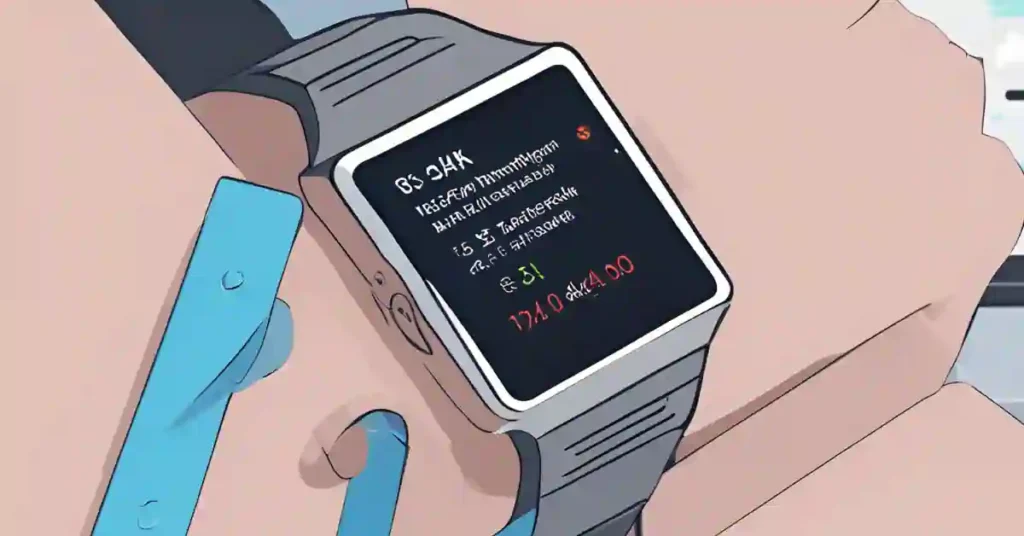
One of the most remarkable features of AI-powered smartwatches is their ability to deliver hyper-personalized insights. By continuously collecting and analyzing data from me, these devices can create a comprehensive profile of my unique health and lifestyle characteristics. This personalized approach allows smartwatches to offer recommendations that are specifically tailored to my needs, preferences, and goals.
For instance, my AI-powered smartwatch can analyze my sleep patterns and provide personalized recommendations for improving sleep quality. It can also track my physical activity levels and suggest customized workout routines to help me achieve my fitness goals.
Additionally, these devices can monitor my stress levels and offer relaxation techniques or meditation exercises to help me manage stress and anxiety.
Hyper-personalized insights from AI-powered smartwatches have had a profound impact on my overall well-being. By providing me with tailored recommendations and insights, these devices have empowered me to take a more proactive approach to my health, leading to improved health outcomes and a better quality of life.
Transforming Healthcare and Wellness
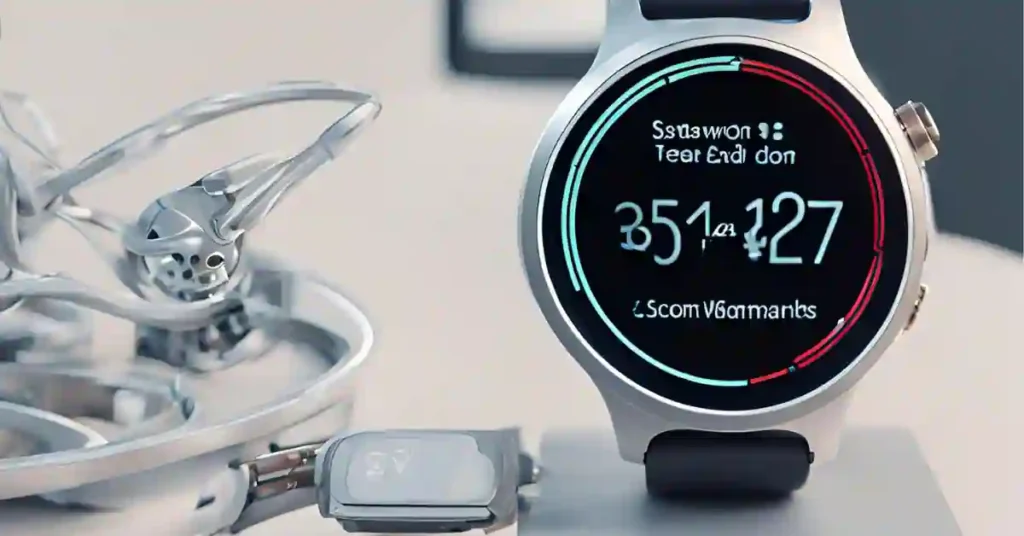
The integration of AI and smartwatches has the potential to revolutionize the way I approach healthcare and wellness. By providing real-time, personalized data and insights, these devices can help me make more informed decisions about my health, potentially leading to earlier detection of health issues and more effective preventive measures.
Moreover, the continuous monitoring capabilities of AI-powered smartwatches can be invaluable for healthcare professionals, enabling them to remotely track my data and provide more personalized care. This integration of technology and healthcare can lead to improved patient outcomes, reduced healthcare costs, and a more efficient healthcare system overall.
For example, AI-powered smartwatches can be used to monitor patients with chronic conditions, such as diabetes or heart disease, and provide real-time feedback to healthcare professionals. This can enable healthcare professionals to make more informed decisions about patient care, leading to better health outcomes and reduced healthcare costs.
Addressing Challenges and Concerns
As with any emerging technology, the integration of AI and smartwatches also raises important considerations and challenges that need to be addressed. Issues such as data privacy, security, and the accuracy of AI algorithms must be carefully addressed to ensure the responsible and ethical development of these technologies.
I believe that smartwatch manufacturers and developers must prioritize the development of robust data protection measures, transparent data-sharing practices, and rigorous testing of AI algorithms to ensure their reliability and fairness. By addressing these concerns, the full potential of AI-powered smartwatches can be realized, empowering individuals like me to take control of their health and wellness like never before.
how do I analyze sleep patterns using AI in my smartwatch?
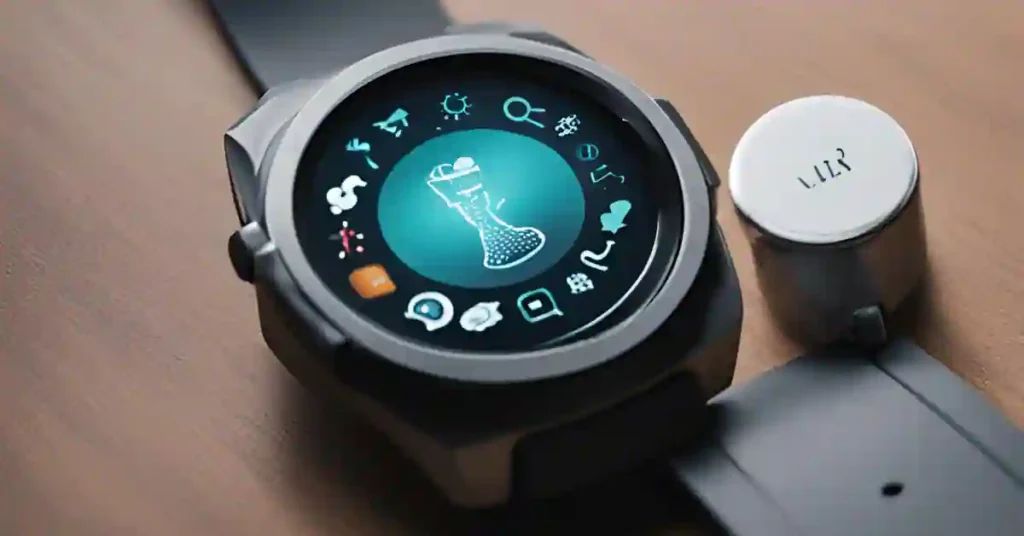
Smartwatches are increasingly utilizing artificial intelligence (AI) to provide insightful analysis of sleep patterns. This technology offers a user-friendly and non-invasive approach to understanding your sleep health.
Data Collection and Processing
Smartwatches incorporate various sensors, including accelerometers for movement and optical sensors for heart rate. This raw data undergoes preprocessing to eliminate noise and prepare it for AI analysis.
Machine Learning for Sleep Stage Classification
Supervised machine learning algorithms, like Support Vector Machines (SVMs), play a key role. These algorithms are trained on vast datasets of sleep data with corresponding sleep stages (light, deep, REM) obtained from Polysomnography (PSG) tests, the gold standard for clinical sleep assessment.
Through training, the AI model learns the complex relationships between sensor data and sleep stages. Subsequently, it can infer sleep stages based on the smartwatch sensor data collected throughout the night.
Sleep Metrics and User Insights
AI analysis translates raw data into sleep metrics such as total sleep duration, sleep efficiency (percentage of time asleep in bed), and time spent in each sleep stage.
Smartwatches may leverage AI further to provide personalized insights based on your sleep patterns. This could include comparisons to recommended sleep guidelines, identification of potential sleep disruptions, and recommendations for improved sleep hygiene.
Considerations and Accuracy
While highly convenient, AI-based sleep tracking has limitations. The accuracy may not perfectly match PSG results, particularly for individuals with restless sleep or those taking medications affecting sleep patterns.
AI in smartwatches offers a valuable tool for promoting sleep health awareness. By providing insights into sleep patterns, these devices empower individuals to make informed decisions about their sleep hygiene and potentially improve overall well-being. It’s important to recognize that smartwatch sleep tracking is not a replacement for a formal sleep study, but rather a complementary tool for self-monitoring and promoting better sleep habits.
what are the main challenges in integrating AI with smartwatches for personalized nutrition?
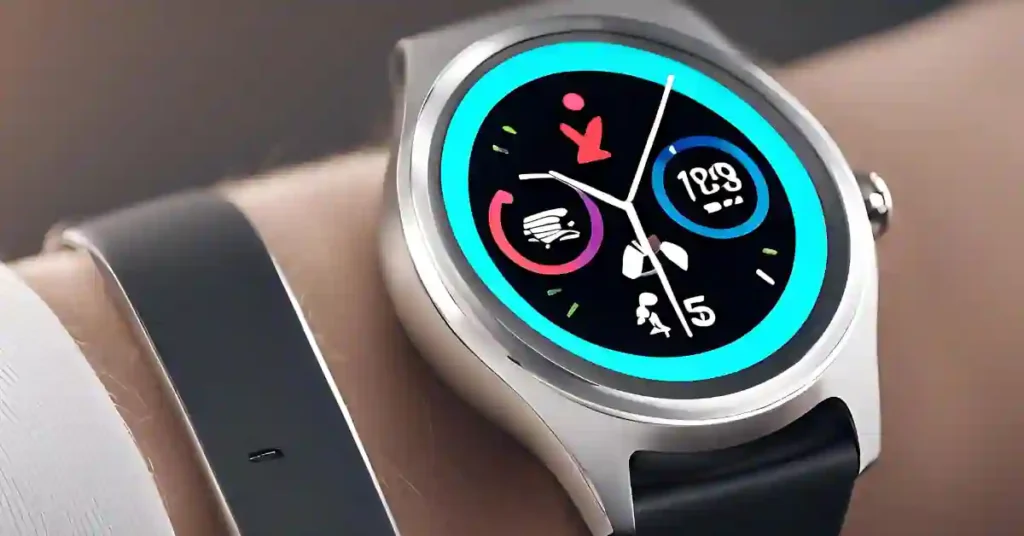
The integration of AI for personalized nutrition in smartwatches holds immense potential, but faces significant challenges:
1. Data Acquisition and Accuracy:
- Incomplete Dietary Intake Data: Personalization requires accurate information about an individual’s diet. Smartwatches often rely on user-reported food intake, which can be susceptible to under-reporting, inaccurate portion estimations, and missing entries.
- Limited Nutrient Specificity: Smartwatches may struggle to accurately determine the nutrient composition of complex meals or estimate micronutrient intake based on limited data points.
2. Individual Biometric Variability:
- Unique Responses to Nutrition: Individuals exhibit varying responses to specific foods and dietary patterns. AI models in smartwatches currently rely on a limited range of data points (e.g., activity levels, heart rate) which may not fully capture the complex interplay between individual biochemistry, gut microbiome, and dietary response.
3. Evolving Health Needs:
- Dynamic Health Conditions: Nutritional needs change based on evolving health conditions and medications. Smartwatch AI models need to be adaptable and incorporate updates on user health to maintain accurate recommendations.
4. Data Privacy and Security:
- Sensitive Dietary Information: Personal dietary data is sensitive and requires robust security measures to ensure user privacy and prevent misuse. Smartwatch AI systems need to be designed with strong data protection protocols.
These challenges necessitate ongoing research and development in:
- Improved Food Logging Techniques: Developing more user-friendly and accurate methods for users to input dietary data, potentially leveraging image recognition or integration with barcode scanners.
- Advanced Sensor Technology: Incorporating novel sensors into smartwatches that can capture a wider range of physiological data points relevant to personalized nutrition.
- Advanced AI Algorithms: Developing more sophisticated AI models that can account for individual variability and dynamic health needs by integrating additional user data sources (e.g., blood tests, and genetic information).
By addressing these challenges, AI-powered smartwatches can evolve into powerful tools for personalized nutrition, empowering users to make informed dietary decisions for optimal health.
Conclusion
The convergence of AI and smartwatches is ushering in a new era of personalized health and wellness. These advanced wearable devices are transforming the way I monitor, understand, and manage my overall well-being, providing hyper-personalized insights that can lead to improved health outcomes and a better quality of life.
As technology continues to evolve, the future of AI-powered smartwatches holds immense promise, with the potential to revolutionize the way I approach healthcare and wellness. By embracing this transformative technology, I can empower myself to take a more proactive and informed approach to my health, ultimately leading to a healthier and more vibrant life.

